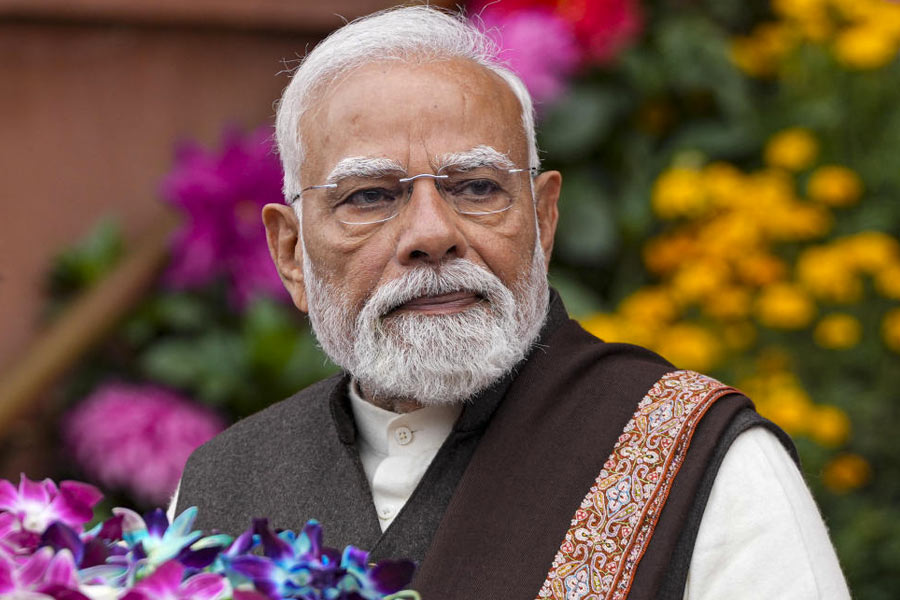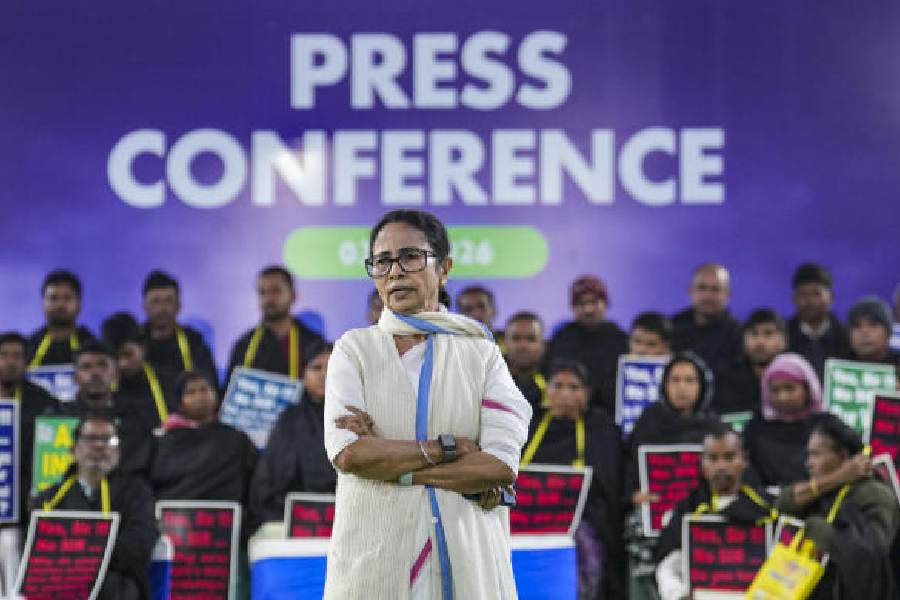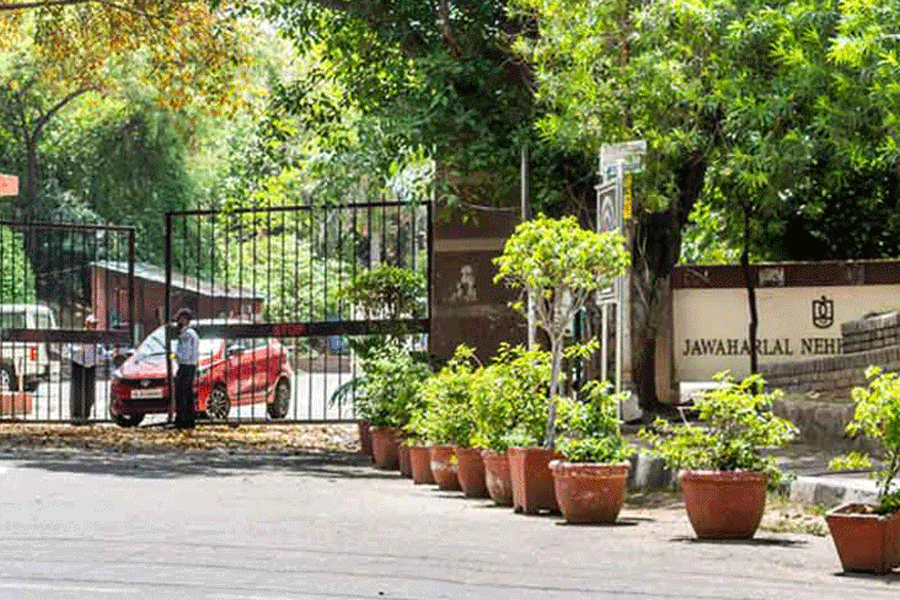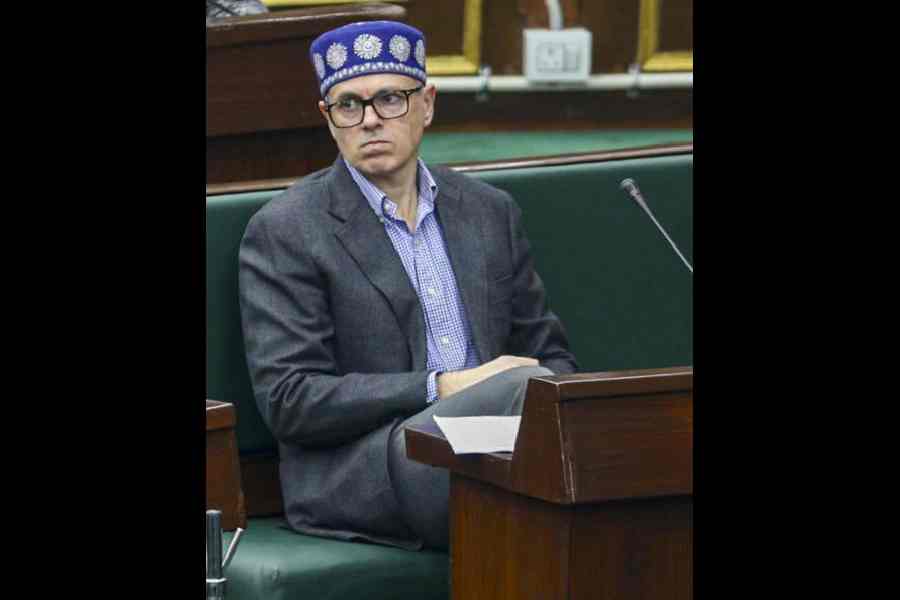
Recuperating from a kidney transplant, Arun Jaitley is currently minister without portfolio. But ever since he returned home from hospital two weeks ago, the temporarily relieved finance minister has been blogging quite a bit.
He has blogged more than once against the Congress president, Rahul Gandhi, and his inadequacies. These diatribes have garnered a fair amount of publicity in the media, as Jaitley's articulations invariably do. But it is Jaitley's analysis of "increased Maoist activities" in the country that is by far more interesting - and a little ominous too.
In his blog dated June 8, Jaitley spoke of the spread of Maoist activities "in areas other than usual extremism affected areas" but did not elaborate this with any specific example. Instead, he recalled his speech in the Rajya Sabha when the United Progressive Alliance was in power wherein he had described "four kinds" of Maoists in India.
The first, according to Jaitley, were those who "ideologically indoctrinate"; the second were those who used weapons to carry out their operations; the third were "innocent tribals or others who face injustice, who have been misled to believe that Maoists will get them relief"; and the fourth was the "half Maoist".
Jaitley is rather proud of formulating the term "half Maoist". Describing what he means by it, Jaitley wrote: "Willingly or otherwise, they become over-ground face of the underground. They are a part of the democratic system. They masquerade as activist; they speak the language of democracy; they have captured the human rights movement in several parts of the country but always lend support to the Maoist cause."
In Jaitley's sweeping definition, any activist who takes up the cause of the downtrodden or speaks out against any form of injustice can be deemed a "half Maoist". In fact, speaking in the Rajya Sabha on April 15, 2010, Jaitley - the then leader of the Opposition in the House - had accused the Congress of harbouring "half Maoists" in its ranks.
It was the UPA government that launched a massive operation against Maoist (or Naxalites) activists, particularly in their strongholds in Chattisgarh and adjoining districts, with Manmohan Singh characterizing them as "the greatest internal security threat to India."
But while the home ministry, under P. Chidambaram, advocated a hard line assault on Maoists, there were many voices within the Congress, and in civil society, that refused to see the issue in purely "law and order" terms.
In his 2010 speech, Jaitley mercilessly targeted those who felt that the real issues of poverty and injustice, which provided Maoists with a support base, should also be addressed. Referring to criticisms made by Congressmen such as Digvijaya Singh and Mani Shankar Aiyar to the home ministry's approach, Jaitley thundered: "... What we don't need is a Government which tries to pull down its home minister; what we don't need is a divided Government; what we don't need is half Maoists in the Treasury Benches who try and pull down the Government by saying that the fight against Maoist must be diluted..."
Addressing a press conference three days later, Jaitley accused the UPA chief, Sonia Gandhi, and other senior Congress leaders of backing a "soft line" in tackling the Maoists, and said, "A half-battle against Maoists can never succeed. A half-battle is a losing battle."
Back then, Jaitley was an Opposition leader and his accusations against the Congress of being "half Maoist" could have been dismissed as a dose of exuberant rhetoric.
But today, as a leading member of the ruling party which has completed four years in office, his words carry far more weight and reflect a more sinister intent. The Modi government's favourite epithet to those opposing its policies or resisting the sangh parivar's Hindutva offensive has been "anti-national". That seems to be getting passé, and "half Maoist" could become the new label to tarnish, target, and incarcerate all manner of activists.
That is already happening. On June 6, two days before Jaitley wrote his blog on Maoists, five leading Dalit and human rights activists were arrested in different parts of the country. They included Shoma Sen, associate professor in the English department in Nagpur University; Surendra Gadling, general secretary of Indian Association of People's Lawyers; Sudhir Dhawale, editor of the Marathi magazine Vidrohi and founder of Republican Panthers; Rona Wilson, human rights activist and public relations secretary of the Committee for the Release of Political Prisoners; and Mahesh Raut, a former Prime Minister's Rural Development Fellow who has been working among tribals in Maharashtra's Gadchiroli district.
They have been charged, among other things, of inciting violence in Pune on December 31 by organizing the Elgaar Parishad on the eve of the bicentenary of the battle between the Peshwas and the British near the village of Koregaon on the Bhima river. On January 1, 1818, the British regiment consisting of people belonging to the untouchable Mahar community defeated the Peshwas - and Babasaheb Ambedkar was the first to commemorate that day as a victory of the oppressed against Brahminical forces.
At the second centenary celebrations this year, the Ambedkarite groups were attacked by mobs allegedly led by Manohar Bhide and Milind Ekbote, both known to have links with the sangh parivar.
The Maharashtra police's decision to crack down on the activists and take no action against Bhide (Ekbote was arrested briefly but is out on bail) has only strengthened the view that those who fight for Dalits and other subaltern groups face the might of the State, while the socially powerful get the State's overt or tacit backing. Whether or not the arrested activists - all of whom have openly fought for their causes for long - have sympathies for or links with the Maoists has become less important than the reasons they have been picked up for and charged with offences under draconian laws such as the Unlawful Activities (Prevention) Act.
The earlier arrest of the Dalit activist, Chandrashekhar Azad 'Ravan', of the Bhim Army in western Uttar Pradesh under the National Security Act, the charges of sedition against student leaders such as Kanhaiya Kumar and Umar Khalid, and the mass arrests of agitating farmers in Madhya Pradesh last year have added to the impression that the governments at the Centre and in the Bharatiya Janata Party-ruled states have little tolerance for any kind of protest or resistance.
This crackdown on activists of all hues is, ironically, helping the Maoist propaganda on the brutality of the Indian State. Jaitley had blamed the UPA's "soft line" for the spread of Maoist activities. But the "hard line" of the Modi government has not been able to end violence in India's heartland either. Rather, the inhuman treatment of convicted "Maoists" such as G.N. Saibaba has only made the State seem extraordinarily cruel to even those who have little sympathy for Naxalite ideology and tactics.
Saibaba, a Delhi University professor and leading civil liberties activist, was arrested when the UPA was in power on the charge of being a member of the banned Communist Party of India (Maoist). He was convicted in March 2017 and sentenced to life imprisonment.
Since then, several disability rights groups have been campaigning for his bail and immediate hospitalization considering that Saibaba is a wheel chair user with 90 per cent physical disability. In their letters to the National Human Rights Commission, disability rights advocates have pointed out that Saibaba has been facing "tremendous difficulties in Nagpur jail", has been "mistreated and mishandled by the police and jail staff on a regular basis" and "is being held in solitary confinement and is dependent on help and assistance from strangers for even the most basic bodily functions."
Given his desperate physical condition, it is difficult to imagine him as a "dreaded" terrorist who can wreak havoc on the system if allowed a little freedom and medical attention. His continued confinement, on the contrary, reveals the fragility and paranoia of the Indian State.
India's "law and order" machinery has always had a brutal and menacing side to it. But India also provided spaces for protest and resistance, for dissent and rebellion; for - in V.S. Naipaul's evocative phrase - "a million mutinies".
Those spaces are shrinking day by day. And we dare not raise our voice against it. Or we shall face the consequences of being declared not just anti-national but also "half Maoist".










